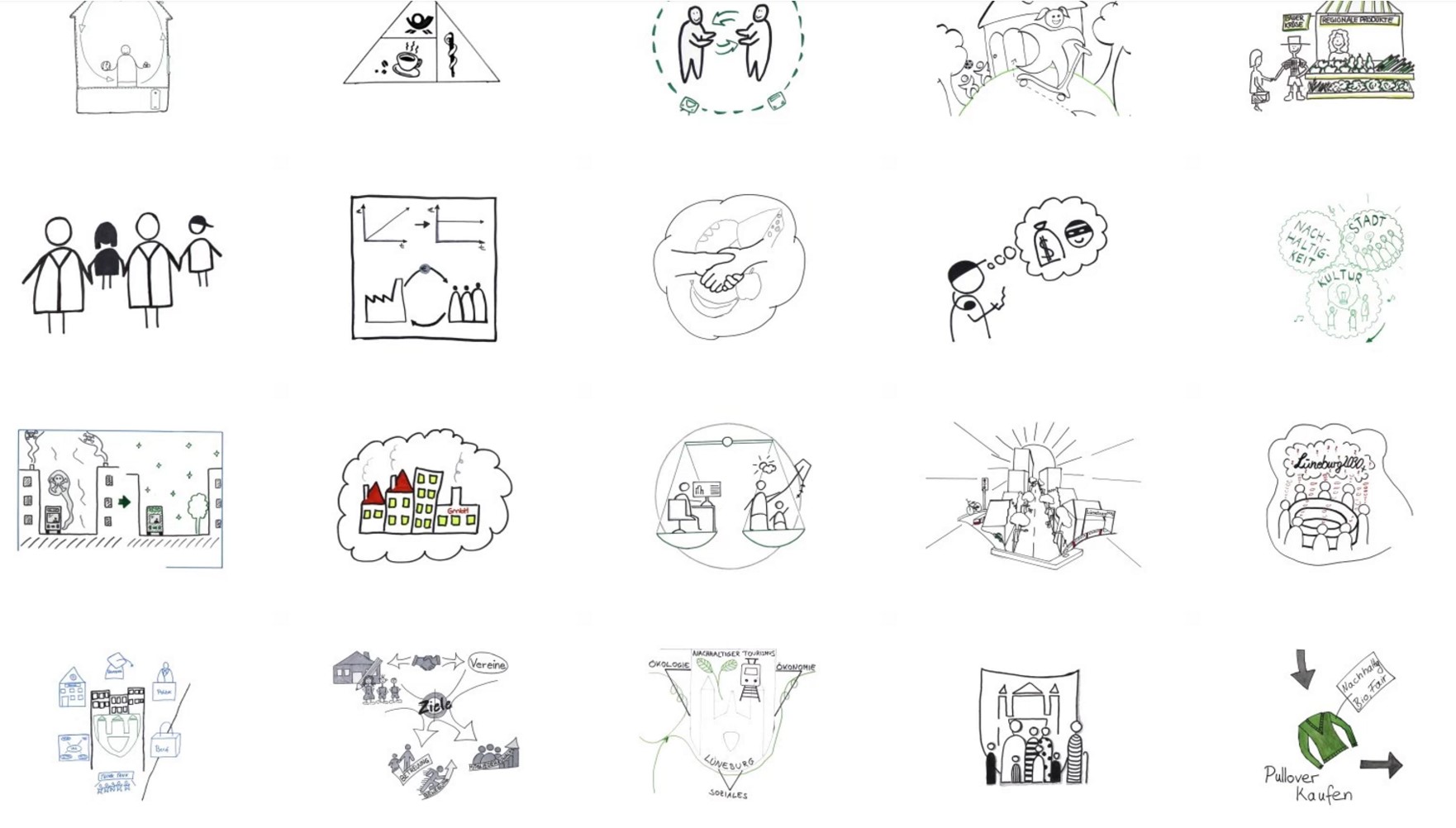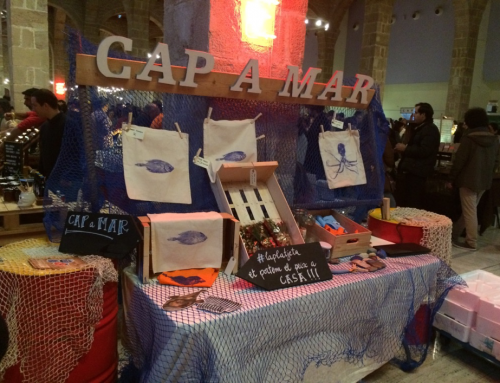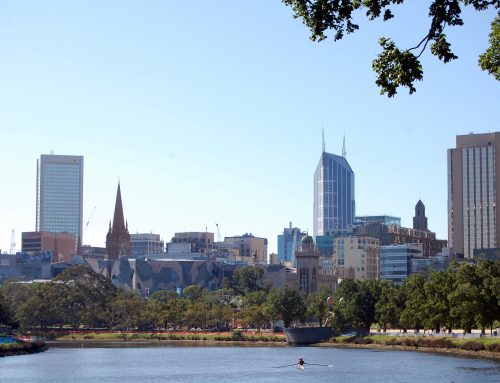How could the city of the future be designed and constructed to enable more sustainable pathways of development?
City of the Future Lüneburg 2030+ is a project that aims to envision the future city of Lüneburg, Germany in a way that it turns into more sustainable, livable and fair place. The project has been jointly developed by the sustainability oriented University of Leuphana, the local government of the Hanseatic City of Lüneburg, local NGOs and business as well as citizens. Through the engagement of almost 1,700 first semester students of Leuphana University and different participants from the previously mentioned groups, the project developed future visions of the city by considering different aspects, such as urban ecology, mobility and climate change, sustainable consumption, health care, environmentally conscious tourism and culture, and social equity.

In a first step, the project has developed sustainability visions in 25 different thematic fields that together comprise an Atlas of Visions and support the local implementation of the Sustainable Development Goals (SDGs). This project has contributed and will contribute to shape the City of Lüneburg and the conditions of its citizens by fostering individual awareness of central aspects of a sustainable city, such as a healthy diet, environmental protection, social inclusiveness and solidarity.
The project by building commitment and engagement with sustainable production and consumption has also promoted a sense of community in the city. It has promoted collaboration between cultural and civil society initiatives, administration, the university, local business actors and citizens, and this has lead to the construction of a local network that is focussed on locally meeting the Sustainable Development Goals (SDGs).
The project is continuing under the new name “City of the Future Lüneburg 2030+.” It now plans to develop “real laboratories” to try to implement in practice the project’s 25 visions. This will allow the project to go beyond awareness raising regarding sustainability but to deeply shift people’s values, attitudes, and behaviours towards cooperation and sustainability. Currently, Master Students in Sustainability Science are consolidating visions and elaborating pathways of implementation.
This type of project could be implemented in other small cities in which university/town partnerships are possible. Locally, in Lüneburg, the partnership between town and university provides the potential for the project to grow and deepen its sustainability actions to not just envision the future but also shape it.



